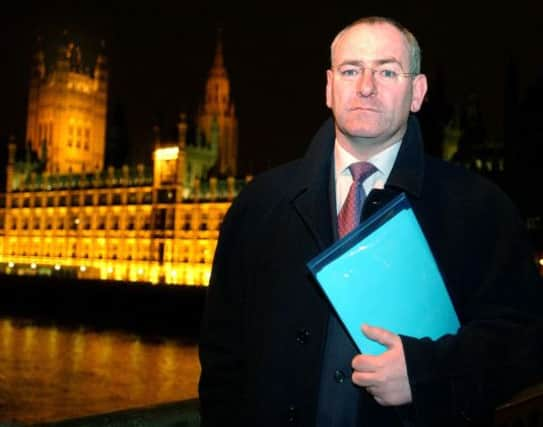Scottish devolution timetable ‘is unrealistic’


And Mark Durkan, former Deputy First Minister of Northern Ireland even suggested a comparison between the years of political “stalling” that followed the Good Friday Agreement and the Smith Commission on enhanced devolution.
The Commission is currently working with the main parties at Holyrood in an effort to broker a deal on more powers after the high profile vow by David Cameron, Nick Clegg and Ed Miliband during the referendum in Scotland.
Advertisement
Hide AdAdvertisement
Hide AdMPs on the Political and Constitutional Reform Committee heard warnings from leading academics Professor Michael Keating of Aberdeen University and Nicola McEwen of Edinburgh University that any agreement could make Scotland’s settlement worse.
“The timetable we’ve been given to do this is not realistic,” Prof Keating said today.
The academic said he has been carrying out work into taxation and welfare - the key powers likely to be devolved - but he “simply hasn’t been given enough time” to make a submission to Smith on this because of the complexities of the “technical detail” involved.
He said a year would be a “reasonable” timeframe for the process. The Smith Commission is currently committed to delivering recommendations on more powers by the end of next month, with draft legislation earmarked for the end of January.
Dr McEwen suggested that there was only enough time to come up with general “heads of agreement.”
And she warned: “These will not scratch the surface to see if these are workable ideas, what the implications of introducing these new responsibilities would be and how it might unfold.
“I suspect that means that whatever comes out it is probably not going to be sustainable and we will back here within a few years, talking about either fixing that or what next.”
She also voiced concerns that after the mass public engagement in the referendum campaign, which saw a turnout of 85 per cent, there is “no scope” for the public to get involved in the Smith Commission.
Advertisement
Hide AdAdvertisement
Hide AdMr Durkan of the SDLP, who was Deputy First Minister of Northern Ireland for a period during the peace process, warned of similarities with the situations.
“As a reflection of my own experience negotiating the Good Friday Agreement which I’ve observed long before the current context,” he said.
“One of the regrets I have with our process was that after the high water mark of the referendum in the North and South in Ireland supporting the Good Friday Agreement, the process was too quickly privatised to the politicians.”
He said this was when “stalling and frustration emerged” in the process.
SEE ALSO